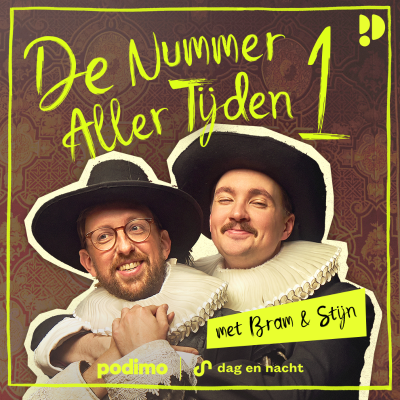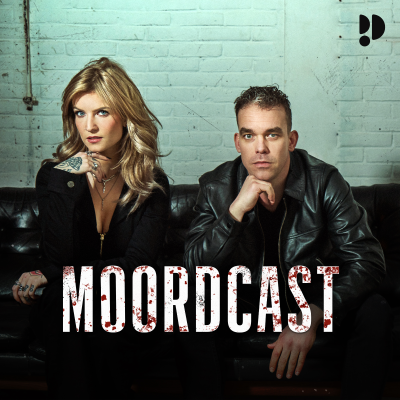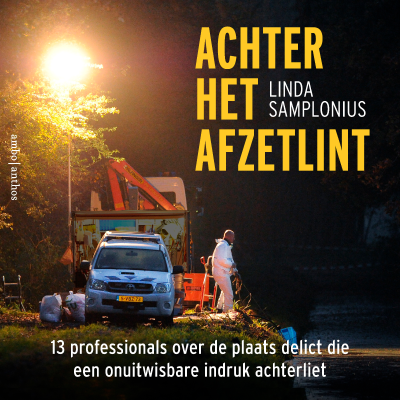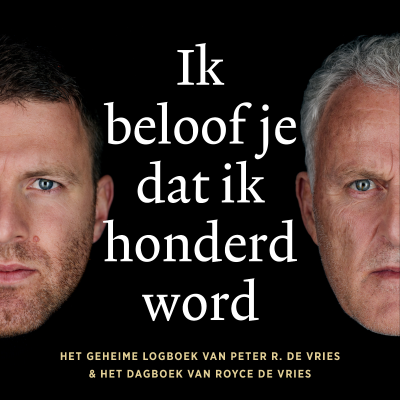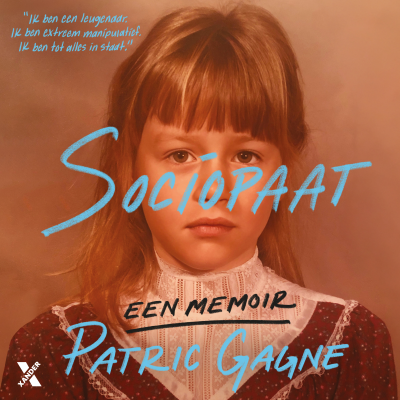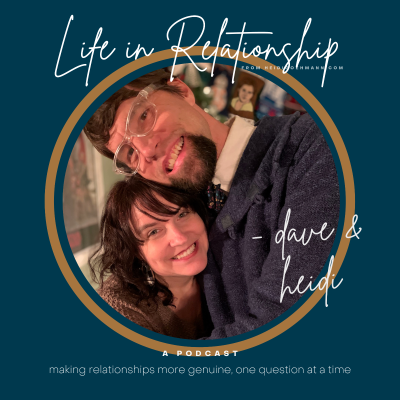
Life in Relationship
Podcast door Heidi and David Goehmann
Writer, licensed clinical social worker, and theologian, Heidi Goehmann, produces resources that advocate for mental health and genuine relationships. She loves her family, post it notes, Jesus, adventure, Star Wars, Star Trek, and new ideas…not necessarily in that order.
Probeer 7 dagen gratis
€ 9,99 / maand na proefperiode.Elk moment opzegbaar.
Alle afleveringen
166 afleveringenQuestion: What skills can nature teach us about life transition and change? Transitions come with stress * Attending to the transition, noticing the energy and tasks required * Various emotions of transition * Nature as an intentional place to "escape" to Tip #1 - any time in nature is valuable Tip #2 - nature reminds us every thing happens in its time * notice the transitions in nature itself to validate your own * Widen the lens - notice the steady cycle around the changes all around us * allow the time of a transition, nature allows the slowness of transitions * Job and Song of Songs Tip # 3 - Look to Nature for Comfort * Nature as therapist * Build a trustworthy relationship with nature (and with God) * Release of control * Learning by experiencing and presence instead of cognition Tip #4 - Take a Mindfulness Break * Unconscious and conscious integrating for growing awareness * Scripture examples in Song of Songs and Job Colorado State U transition handout - https://extension.colostate.edu/docs/pubs/consumer/10214.pdf [https://extension.colostate.edu/docs/pubs/consumer/10214.pdf] Tip #5 - Reflect and Let God Tend to You Resources - Life is in the Transitions book - https://a.co/d/8LB7Lha Links to research * https://silvotherapy.co.uk/articles/mental-wellbeing-nature-connection * https://health.ucdavis.edu/blog/cultivating-health/3-ways-getting-outside-into-nature-helps-improve-your-health/2023/05#:~:text=1.,answers%20you%20were%20looking%20for [https://health.ucdavis.edu/blog/cultivating-health/3-ways-getting-outside-into-nature-helps-improve-your-health/2023/05#:~:text=1.,answers%20you%20were%20looking%20for]. * https://www.johnmuirtrust.org/resources/788-wild-and-well-nature-connection-wellbeing-and-meaning-in-life * https://www.nature.com/articles/nphys898#:~:text=The%20most%20familiar%20examples%20of,melting%20on%20a%20warm%20hand.
Question: How does nature help with regulation and balance? Dave’s forest therapy training - https://anft.earth/ [https://anft.earth/] Emotion Regulation tip #1 - let things be complicated * Science and mystery * Concrete concepts around ourselves and our bodies as well as spiritual or less concrete concepts around ourselves Emotion Regulation tip #2 - we regulate when we provide a space * For each other (co-regulation) * For ourselves (self-regulation) * We are a part of nature and regulate within nature. * We are constantly in a process of shedding and restoring. * God designed us with internal and externally connected regulation methods. Emotion Regulation tip #3 - getting out of our own way of regulating * How do we accidentally get in the way of regulating naturally? * Origins of forest therapy with the advent of tech/media * Benefits of the natural world on our cardiovascular system Emotion Regulation tip #4 -find the blue spaces and the green spaces * 3 specific outlined mechanisms for emotion regulation in nature: foster positive emotions Signals parasympathetic nervous system or rest/wellbeing state connection and care of nature as respite, rebuilds energy Emotion Regulation tip #5 - practice grounding * Finding a sense in our body that we have a firm foundation, tethered to the ground or our seat * Often feel “ungrounded” in chaotic world and holding 3-5 emotions at any given time * Increasing vagal tone Links: ANFT website - https://anft.earth/ Enoch story (Genesis 5) Noah Kahan, Stick Season - https://youtu.be/iWG6apzIWAk?si=EBS0Ll7biACsxNob Inside Out - https://www.imdb.com/title/tt2096673/ [https://www.imdb.com/title/tt2096673/] Job 38-42 Research: https://greatergood.berkeley.edu/article/item/why_trees_can_make_you_happier#:~:text=Those%20who%20gazed%20at%20a,break%20from%20our%20frenzied%20lifestyles. [https://greatergood.berkeley.edu/article/item/why_trees_can_make_you_happier#:~:text=Those%20who%20gazed%20at%20a,break%20from%20our%20frenzied%20lifestyles] https://www.sciencedirect.com/science/article/pii/S0272494424000987#:~:text=In%20everyday%20life%2C%20people%20are,et%20al.%2C%202019 [https://www.sciencedirect.com/science/article/pii/S0272494424000987#:~:text=In%20everyday%20life%2C%20people%20are,et%20al.%2C%202019]).
Question: How do I let go of things I can’t control? A Dave and Heidi story: the cynical season or “life on the edge” and our first forest therapy attempt * Learning to let go of the outcome Letting Go Tip #1 - Find a practice of noticing what we don’t control or can’t control * Example: stand in the woods or the yard and note the basic elements of nature around you that you can’t control Letting Go Tip #2 - Read Job chapters 38-42 * The duality of meaningfulness and meaninglessness * The duality of Challenge and acceptance * “Job’s in scripture because his life was hard, not because he was doing really well at it.” * When it feels like God is jacking around with you, building the trust Letting Go Tip #3 - Finding non-judgment in nature and God * Nature can hold and contain our challenges * Psalm 51 - here’s my heart, insight in truth and love * Notice what confusion is present and bring it to God Letting Go Tip #4 - Note the cost of control Top three psychological impacts of tightly holding onto control - Stress and anxiety Relationship impact Challenges with resilience based on adaptability Letting Go Tip #4 - Try out an Ecclesiastical Mindset * Seasonal approach to living * What is it “a time for” right now, but also letting a new season come * Ecclesiastes 3 link: https://www.bible.com/bible/111/ECC.3.1-11.NIV * Open your hands to share it, don’t go it alone
Welcome to Season 7 of our little podcast! Dave and I are looking forward to a season of talking about three of our very favorite things comingled...well, four really - life in relationships, mental health, the natural world, and spirituality. Some topics and questions you'll find in the conversation this season include: How does nature help with emotion regulation? How do I let go of things I can’t control? What skills can nature teach us about life transition and change? How do I start healing from Spiritual Trauma? And more... Look for 7 episodes wherever you get your podcasts. Look for articles and more resources at heidigoehmann.com to complement what you hear. Find Heidi and Dave (mostly Heidi) on instagram - https://www.instagram.com/heidigoehmann/ substack - https://substack.com/@heidigoehmann youtube - https://www.youtube.com/heidigoehmannwrites and other media outlets. See you soon! Relationships - always worth the effort. We can't wait to be in discussion with you in the coming weeks.
Special guest Chris Kennedy, Pastor and Author Chris’s book, Grace Under Pressure - https://amzn.to/3FBrdU2 [https://amzn.to/3FBrdU2] (associate link) Proactive v reactive approach Proactive = investing in taking care of ourselves, our emotions, our whole selves to be able to live in the moment more authentically as ourselves and in what we value/believe Reactive = awareness of emotion when it comes up Tip 1 - Attend to and nurture The environment Relationships Internal needs Growth mindset – realist outlook + everything is redeemable Tip 2 – Hold the tension of love with your frustration or anger Tip 3 – Remember “more than they deserve” Tip 4 – Non-judgment – grace and truth with the understanding that God is judge, not me Tip 5 – Notice other people Tip 6 – values and faith as driver, emotion as information to process Shame Tip 7 – careful of pouring yourself out to the last drop, we are human The impact of shame and guilt on our internal processing of anger “Holding It Lightly” from dialectical behavior therapy The purpose of frustration and anger
Probeer 7 dagen gratis
€ 9,99 / maand na proefperiode.Elk moment opzegbaar.
Exclusieve podcasts
Advertentievrij
Gratis podcasts
Luisterboeken
20 uur / maand






